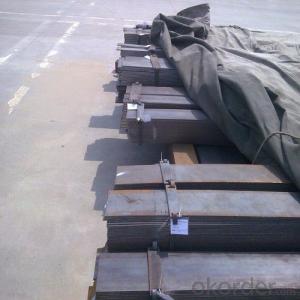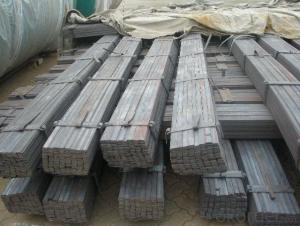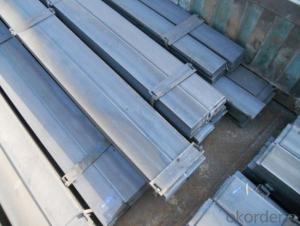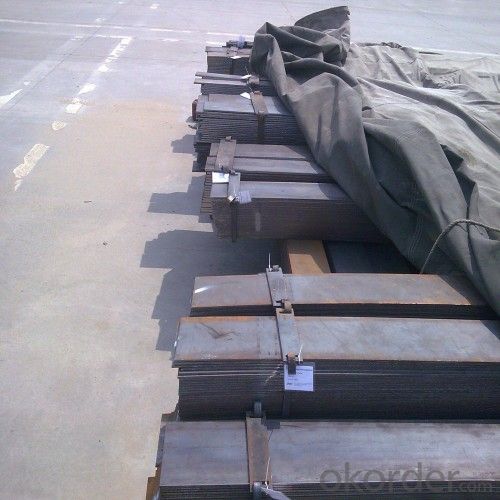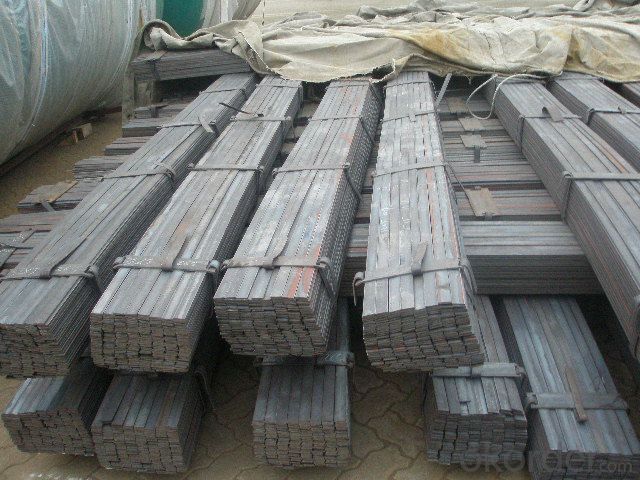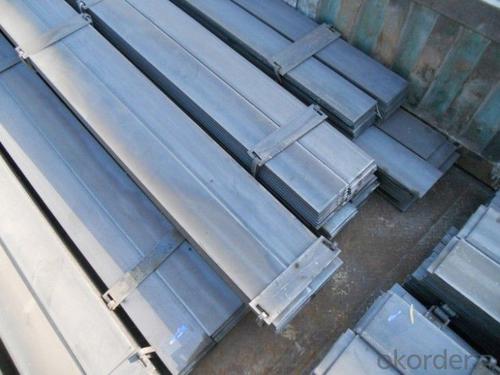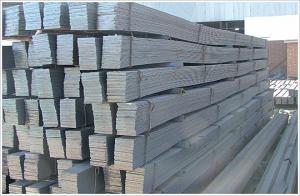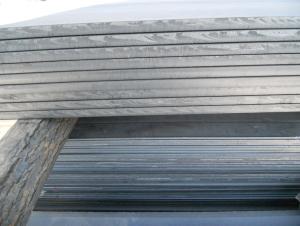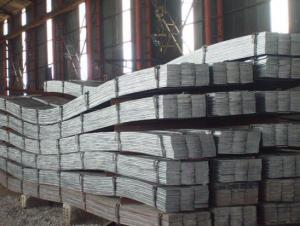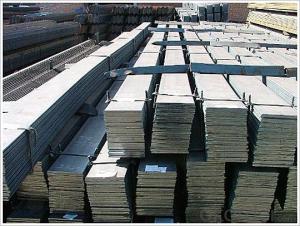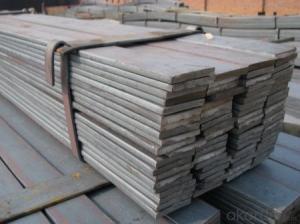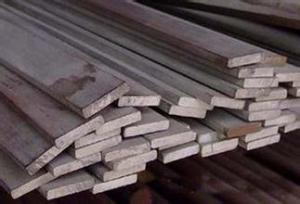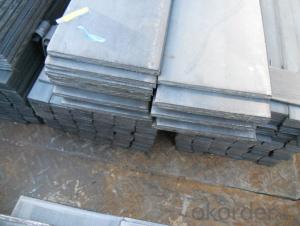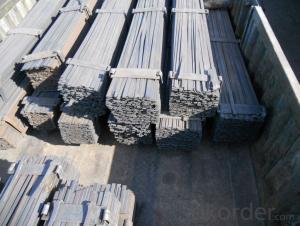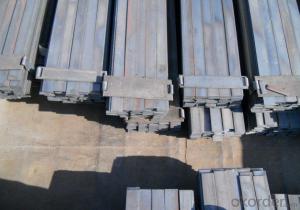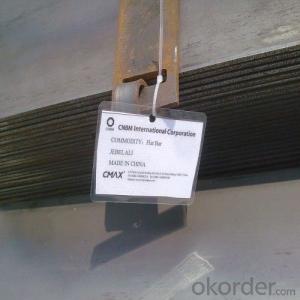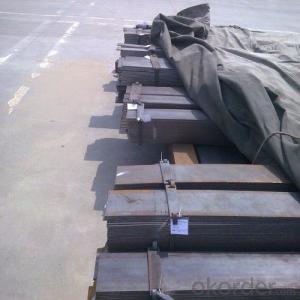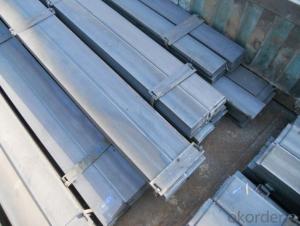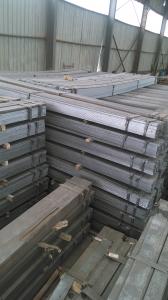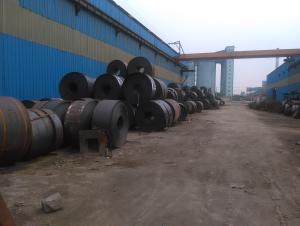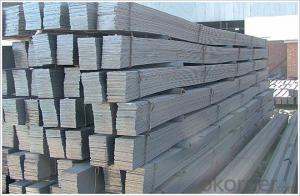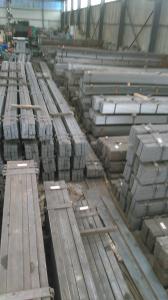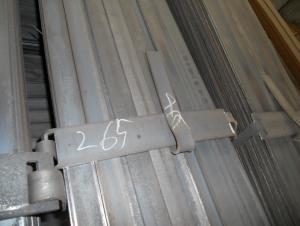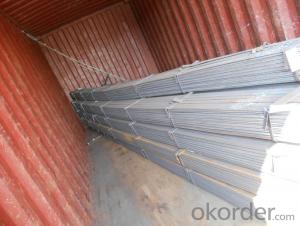Hot Rolled Flat Steel Bars with Material Grade Q235B
- Loading Port:
- Tianjin
- Payment Terms:
- TT OR LC
- Min Order Qty:
- 25 m.t.
- Supply Capability:
- 10000 m.t./month
OKorder Service Pledge
OKorder Financial Service
You Might Also Like
Product Description:
OKorder is offering high quality Hot Rolled Steel Flat bars at great prices with worldwide shipping. Our supplier is a world-class manufacturer of steel, with our products utilized the world over. OKorder annually supplies products to European, North American and Asian markets. We provide quotations within 24 hours of receiving an inquiry and guarantee competitive prices.
Product Applications:
Hot Rolled Steel Flat bars are ideal for structural applications and are widely used in the construction of buildings and bridges, and the manufacturing, petrochemical, and transportation industries.
Product Advantages:
OKorder's Steel Flat bars are durable, strong, and resist corrosion.
Main Product Features:
· Premium quality
· Prompt delivery & seaworthy packing (30 days after receiving deposit)
· Corrosion resistance
· Can be recycled and reused
· Mill test certification
· Professional Service
· Competitive pricing
Product Specifications:
Manufacture: Hot rolled
Grade: Q195 – 235
Certificates: ISO, SGS, BV, CIQ
Length: 6m – 12m, as per customer request
Packaging: Export packing, nude packing, bundled
Chemical composition of Q235
Alloy No | Grade | Element(%) | ||||
C | Mn | S | P | Si | ||
Q235 | B | 0.12—0.20 | 0.3—0.7 | ≤0.045 | ≤0.045 | ≤0.3 |
Physical properties of Q235
Alloy No | Grade | Yielding strength point(Mpa) | Tensile strength (Mpa) | Elongation after fracture(%) | ||||||
Thickness (mm) | Thickness (mm) | |||||||||
≤16 | >16--40 | >40--60 | >60--100 | ≤16 | >16--40 | >40--60 | >60--100 | |||
≥ | ≥ | |||||||||
Q235 | B | 235 | 225 | 215 | 205 | 375--500 | 26 | 25 | 24 | 23 |
FAQ:
Q1: Why buy Materials & Equipment from OKorder.com?
A1: All products offered by OKorder.com are carefully selected from China's most reliable manufacturing enterprises. Through its ISO certifications, OKorder.com adheres to the highest standards and a commitment to supply chain safety and customer satisfaction.
Q2: How do we guarantee the quality of our products?
A2: We have established an advanced quality management system which conducts strict quality tests at every step, from raw materials to the final product. At the same time, we provide extensive follow-up service assurances as required.
Q3: How soon can we receive the product after purchase?
A3: Within three days of placing an order, we will begin production. The specific shipping date is dependent upon international and government factors, but is typically 7 to 10 workdays.
Images:
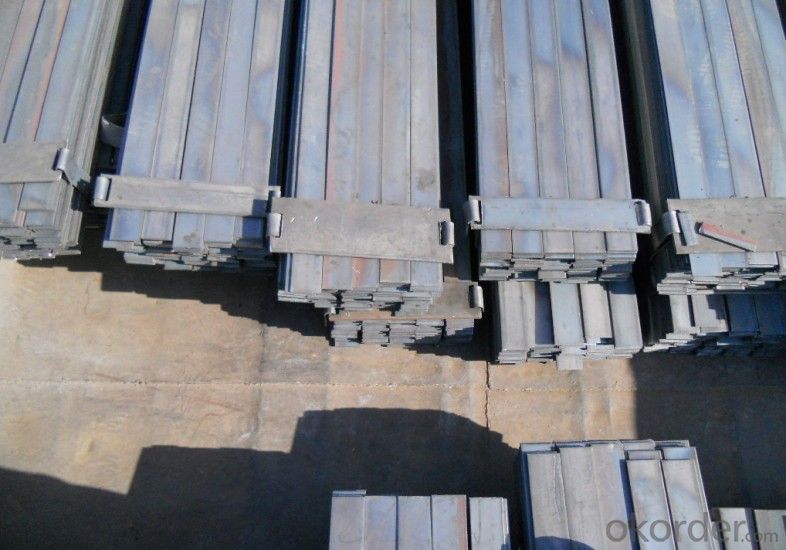
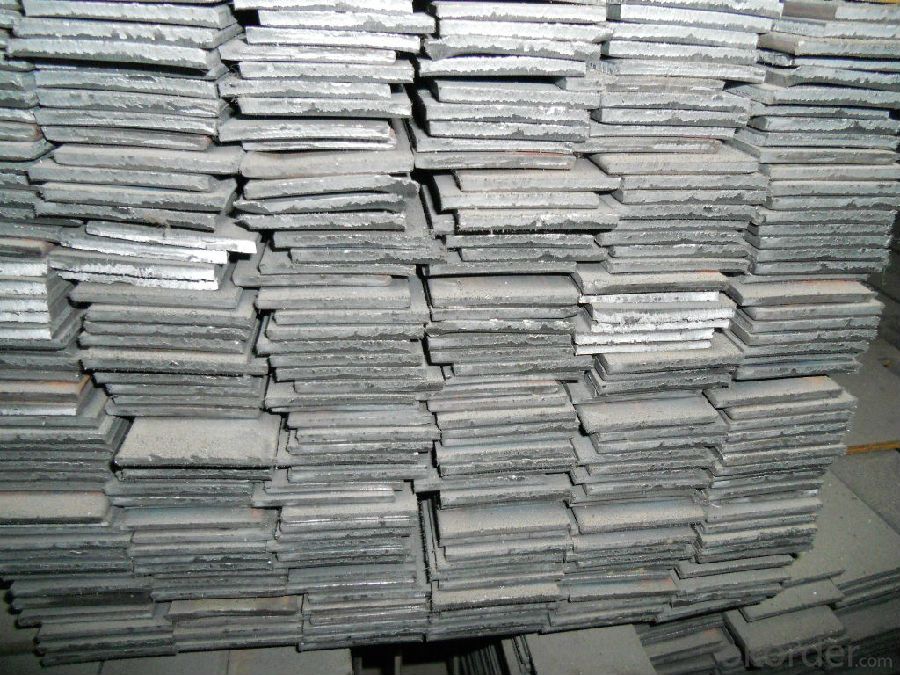
- Q: Are steel flat bars suitable for marine applications?
- Steel flat bars can be suitable for marine applications depending on the specific requirements of the project. While steel is a strong and durable material, it is susceptible to corrosion in marine environments due to the presence of moisture, saltwater, and air. To enhance the suitability of steel flat bars for marine applications, they can be coated or treated with corrosion-resistant materials such as galvanization or stainless steel. These coatings create a protective barrier that prevents or slows down the corrosion process. Additionally, the choice of steel grade is crucial, with marine-grade stainless steel (such as 316 or 316L) being highly resistant to corrosion in saltwater environments. Therefore, when selecting steel flat bars for marine applications, it is essential to consider the specific environmental conditions and choose materials and coatings accordingly to ensure long-term durability and performance.
- Q: What is the cost of steel flat bars compared to other materials?
- The cost of steel flat bars is generally lower compared to other materials such as aluminum or stainless steel.
- Q: What are the common methods of surface protection for steel flat bars?
- The common methods of surface protection for steel flat bars include painting, galvanizing, powder coating, and applying protective coatings such as oil or wax.
- Q: Are steel flat bars suitable for making brackets or supports for recreational equipment?
- Certainly! Steel flat bars are a fitting choice when it comes to fabricating brackets or supports for recreational equipment. Steel, being a robust and long-lasting material, can furnish the required support and stability for a wide range of recreational gear. The flat bars can be effortlessly joined through welding or bolting, enabling the creation of personalized brackets or supports that can endure substantial loads while ensuring structural integrity. Moreover, steel's resistance to corrosion is especially vital for outdoor and water-based recreational pursuits. All in all, steel flat bars offer a dependable option for producing brackets or supports for recreational equipment.
- Q: Can steel flat bars be used for making handrails or guardrails?
- Yes, steel flat bars can be used for making handrails or guardrails. Steel flat bars are often chosen for these applications due to their durability, strength, and versatility. They can be easily shaped and welded to create sturdy and reliable handrails or guardrails for various structures, such as staircases, balconies, or walkways.
- Q: Are steel flat bars prone to rusting?
- Yes, steel flat bars are prone to rusting. Steel is primarily made of iron, which is highly susceptible to rust when exposed to moisture and oxygen over time. Rust is the result of a chemical reaction called oxidation, where iron combines with oxygen to form iron oxide. This process weakens the steel's structural integrity and can lead to deterioration and eventual failure if not addressed. To prevent or minimize rusting, steel flat bars are often coated with protective finishes such as paint, galvanization, or powder coating. Regular maintenance and proper storage, such as keeping the steel dry and away from moisture, can also help prevent rusting.
- Q: What are the different types of steel used in manufacturing flat bars?
- There are several different types of steel that are commonly used in the manufacturing of flat bars. Some of the most common types include: 1. Mild Steel: This is the most common type of steel used in manufacturing flat bars. It is a low carbon steel that is relatively inexpensive and easy to work with. Mild steel flat bars have good weldability and are commonly used in construction, fabrication, and general manufacturing applications. 2. Stainless Steel: Stainless steel flat bars are made from an alloy of steel and chromium, which provides excellent corrosion resistance. It is commonly used in food processing, chemical, and medical industries where hygiene and resistance to corrosion are crucial. 3. Tool Steel: Tool steel flat bars are often used in the manufacturing of cutting tools, dies, and molds. They have high hardness, wear resistance, and toughness, making them suitable for applications that require high strength and durability. 4. Alloy Steel: Alloy steel flat bars are made by adding additional elements such as manganese, chromium, or nickel to improve their mechanical properties. They are commonly used in automotive, aerospace, and machinery industries where high strength and toughness are required. 5. Carbon Steel: Carbon steel flat bars are made from iron and carbon, with a carbon content typically ranging from 0.05% to 2.1%. They are versatile and widely used in various manufacturing applications due to their excellent strength and affordability. It's important to note that these are just a few examples of the types of steel used in manufacturing flat bars. Each type has its own unique properties and advantages, and the choice of steel depends on the specific requirements of the application.
- Q: Can steel flat bars be used in the oil and gas industry?
- Yes, steel flat bars can be used in the oil and gas industry. They are commonly used in various applications such as construction of pipelines, support structures, and equipment fabrication due to their durability, strength, and corrosion resistance properties.
- Q: Are steel flat bars suitable for welding or soldering?
- Indeed, welding or soldering are both suitable methods for joining steel flat bars. Steel, a versatile and widely utilized material, finds application in numerous industries, including construction, manufacturing, and automotive. Steel flat bars, often employed for structural purposes, can be effortlessly welded or soldered together to form larger structures like frames or supports. The choice between welding and soldering depends on the particular use and desired strength of the connection. Welding involves the fusion and melting of the steel, resulting in a durable and permanent bond. Conversely, soldering employs lower temperatures to melt a filler material (solder) that flows into the joint, creating a solid connection. However, it is crucial to acknowledge that the specific type of steel utilized in the flat bars, be it carbon steel or stainless steel, may necessitate different techniques and materials for welding or soldering. It is always advisable to seek professional guidance or consult the manufacturer's guidelines for precise instructions on welding or soldering steel flat bars.
- Q: Can steel flat bars be used in marine applications?
- Indeed, steel flat bars have the potential to serve marine purposes. Nevertheless, it is crucial to utilize a particular variant of steel referred to as marine-grade or stainless steel for such endeavors. Conventional steel is vulnerable to corrosion and rust in the presence of saltwater or environments with elevated humidity, both of which are prevalent in marine settings. Conversely, marine-grade steel is purposefully crafted to endure the demanding circumstances of the marine milieu. It displays remarkable resistance to corrosion, rust, and pitting, rendering it ideal for incorporation in marine undertakings, including boat fabrication, ship assembly, and offshore platform construction.
Send your message to us
Hot Rolled Flat Steel Bars with Material Grade Q235B
- Loading Port:
- Tianjin
- Payment Terms:
- TT OR LC
- Min Order Qty:
- 25 m.t.
- Supply Capability:
- 10000 m.t./month
OKorder Service Pledge
OKorder Financial Service
Similar products
Hot products
Hot Searches
Related keywords
